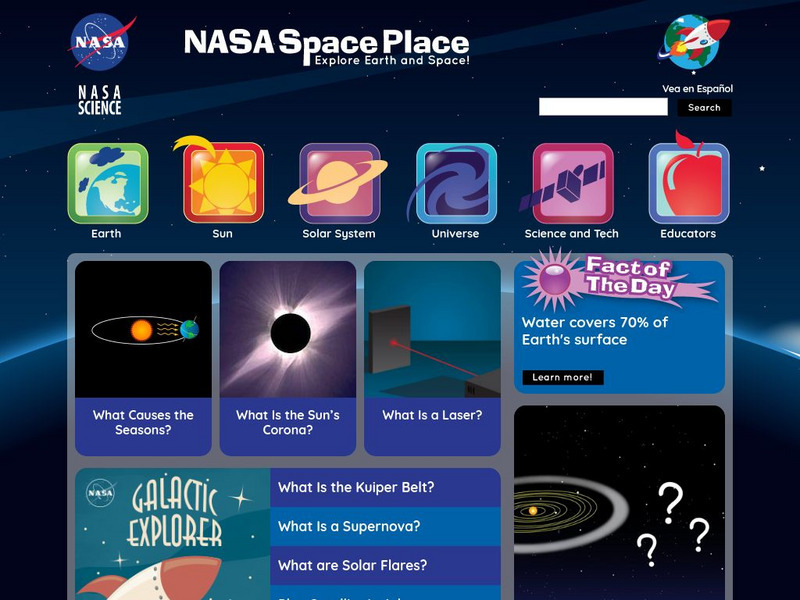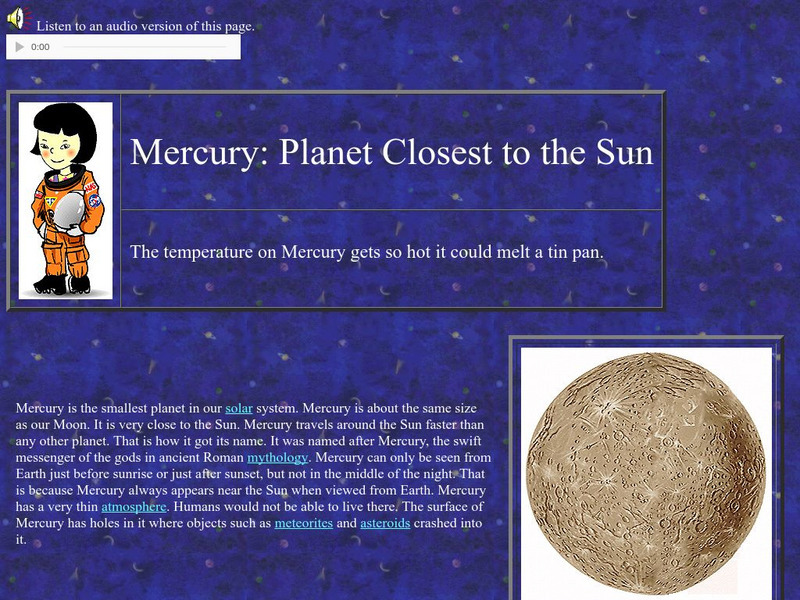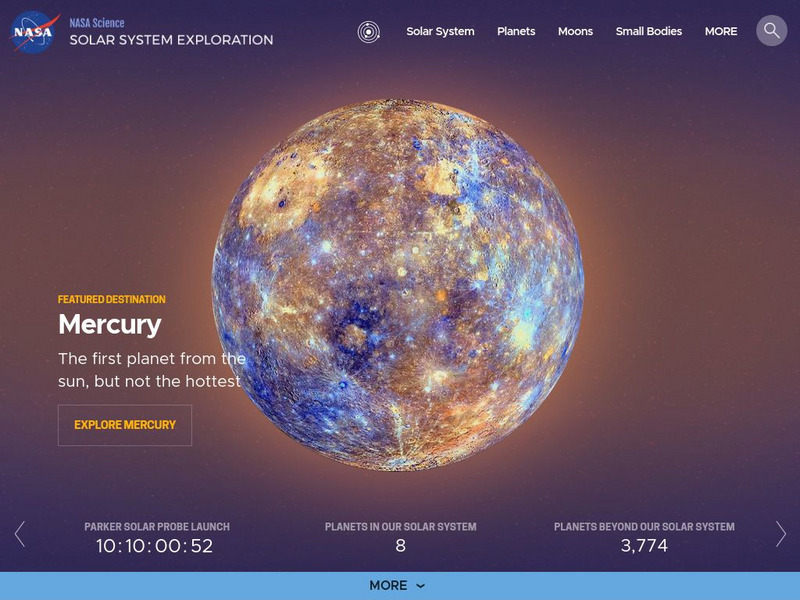Ducksters
Ducksters: Astronomy for Kids: Space Exploration Timeline
Kids learn about the timeline of the history of space exploration including early astronomy, astronauts, spacecraft, planets, and the Moon.
Ducksters
Ducksters: Kids Science: Learn About the Solar System
What makes up the Solar System? Kid astronomers learn about the planets and the sun.
Other
Teaching Ideas for Primary Teachers: Science Ideas
A great resource to discover fun new activities to use in your classroom. Activities are age-appropriate, and span several science topics.
ClassFlow
Class Flow: Planets
[Free Registration/Login Required] This flipchart contains information on our solar system as well as links to related websites, a tic-tac-toe game and Activote questions.
ClassFlow
Class Flow: Planets
[Free Registration/Login Required] This flipchart presents an extensive lesson on the planets of our solar system.
ClassFlow
Class Flow: Planets and Stars
[Free Registration/Login Required] In this flipchart students will learn about the planets and stars.
ClassFlow
Class Flow: Solar System Jeopardy
[Free Registration/Login Required] This flipchart provides a quiz with mostly multiple choice questions specific to planets, comets, space travel, and our moon.
ClassFlow
Class Flow: Solar System Quiz
[Free Registration/Login Required] This is an assessment flipchart that explores the location of planets in our solar system.
ClassFlow
Class Flow: Space Probes to the Planets
[Free Registration/Login Required] Various activities are found in this flipchart surrounding the theme of the book Space Probes to the Planets. It includes comparing/contrasting, vocabulary development, fact/opinion game, Activote...
ClassFlow
Class Flow: Space Solar System
[Free Registration/Login Required] In this lesson students will compare and contrast the attributes of star, star patterns and planets. Students will also have the opportunity to review facts about each planet and then complete various...
Physics Classroom
The Physics Classroom: Kepler's Second Law
Kepler's second law of planetary motion is stated and explained. An animation of the orbit of a planet and an accompanying graphic assists in explaining the meaning of the law of equal areas.
ClassFlow
Class Flow: What Happened to Pluto?
[Free Registration/Login Required] This flipchart was created to teach students about Pluto and the recent news of it NOT being a planet (officially). Lots of ways for students to vote on why as well as discussions about what other facts...
ClassFlow
Class Flow: Asteroids, Meteoroids, and Comets
[Free Registration/Login Required] In this flipchart students will compare and contrast asteroids, meteoroids, and comets. They will also learn about their origins. Assessment questions are included.
ClassFlow
Class Flow: Astronomy and the Solar System
[Free Registration/Login Required] This flipchart presents the layers of the Sun and the components of the solar system.
ClassFlow
Class Flow: Astronomy Planets
[Free Registration/Login Required] The student will be able to compare and contrast the similarities and differences of the planets. The student will be able to name three facts about inner planets and three facts about outer planets.
ClassFlow
Class Flow: Latin the Language of the Solar System
[Free Registration/Login Required] In this lesson students will learn the history of the solar system and how it is associated with the Roman and Greek Gods.
ClassFlow
Class Flow: Learning the Planets
[Free Registration/Login Required] This flipchart includes a matching activity for students to match the planet's names with their pictures.
ClassFlow
Class Flow: Linking You to Our Solar System
[Free Registration/Login Required] Single flipchart page with links to many of the Solar Systems heavenly Bodies. The links allow you to collect Solar system cards from a wonderful website.
NASA
Nasa: The Space Place
This site from NASA's Space Place is geared towards early elementary learners. It offers detailed instructions for crafts and activities related to space, games and a teacher resource area. Students can also ask an expert at this site.
NASA
Nasa Star Child: Planet Hop
Figure out your age and your weight on all the planets in the solar system using the formulas given here. Then type them into the correct place, and let the computer check to see if you are correct.
NASA
Nasa Star Child: Mercury
Provides good information about Mercury and is a good starting point for information about the planet along with pictures and audio. Links to a simple fact table, puzzle, glossary, and more detailed information.
Cornell University
Cornell University: Astronomy: Orbital Motion and Kepler's Laws
At this site from the Astronomy Department of Cornell University, Kepler's three laws of planetary motion are stated. There are brief explanations of each, along with links to additional information on related subjects.
Other
Sandburg Center for Sky Awareness: What Are the Shapes of the Planets' Orbits?
In this lesson plan investigation students learn about the shapes of the planetary orbits by experimenting with ellipses of different proportions.






















